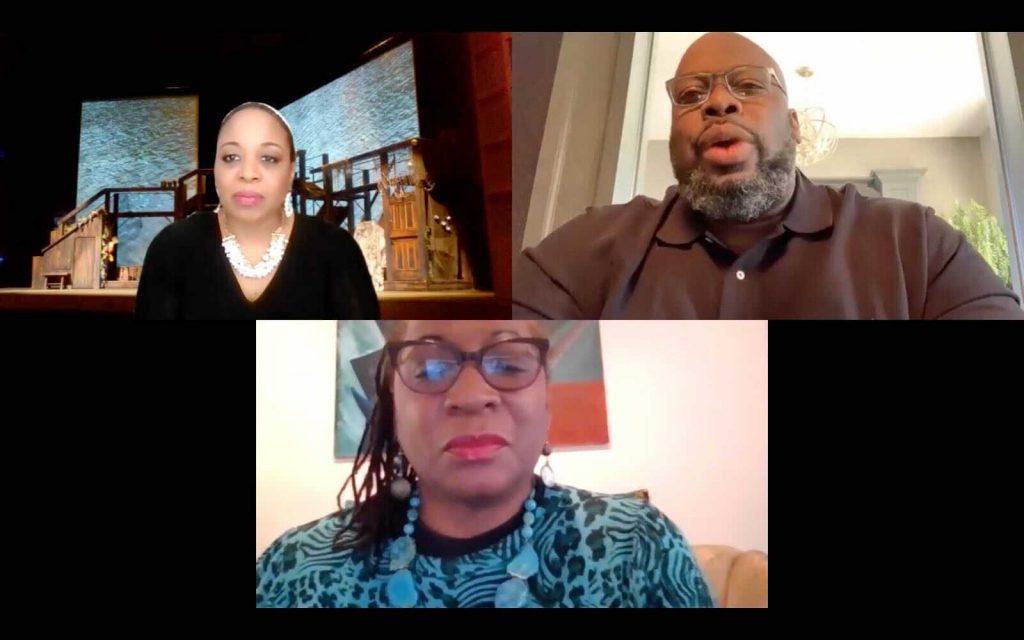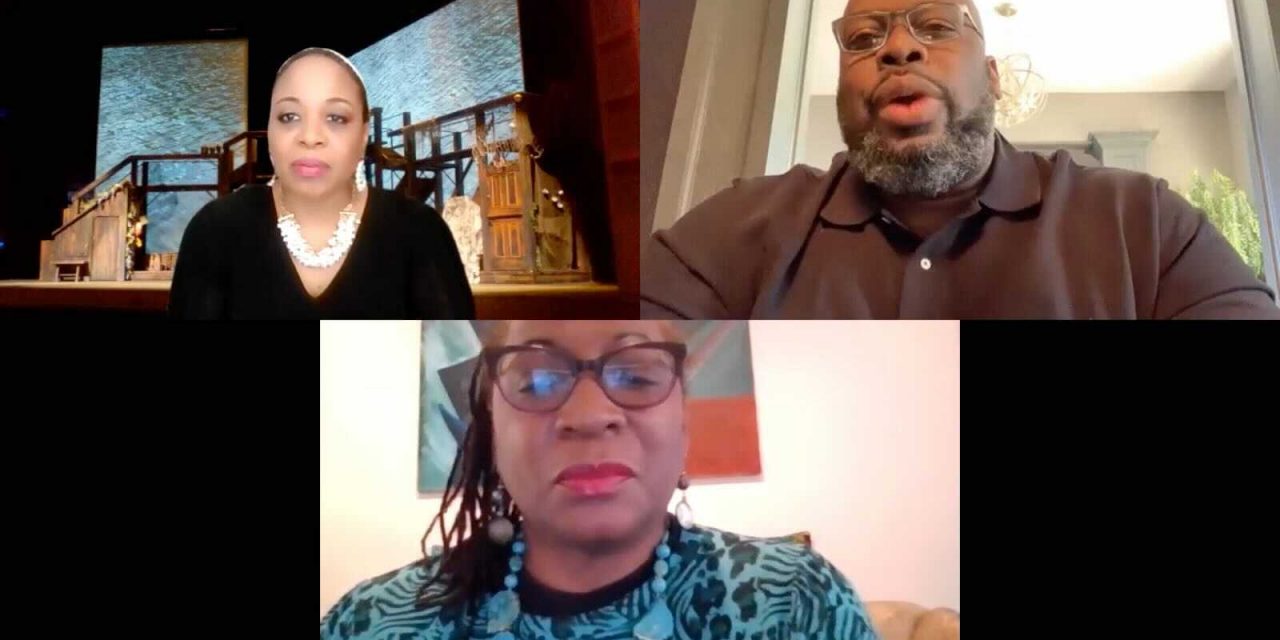American classical music has a staggering diversity issue.
In 2014, Black musicians represented 1.8% of major American orchestra players. The New York Philharmonic has had three Black musicians throughout its history. In 2007, Morris Robinson, an Atlanta native and renowned bass opera singer, became the first African American artist to sign with a major classical record label. As an industry that has historically excluded musicians of color, movement toward new hiring and programming practices that extend the reach of the genre to diverse performers and audiences is long overdue.
On March 10, Robinson joined the Schwartz Center for Performing Arts for a webinar to discuss the lack of representation within the field of classical music in the context of the Black Lives Matter movement. Moderated by Artist Affiliate: Vocal Instructor Maria Clark and Assistant Director at Emory College Center for Creativity & Arts Candy Tate, the webinar also featured a Q&A with Spelman College (Ga.) and Emory students that focused on discrimination in casting and programming.

(Clockwise from top left) Maria Clark, Morris Robinson and Candy Tate discuss diversity in classical music in a dialogue sponsored by the Schwartz Center. (Emory Wheel/Isabel Packard)
Robinson’s journey to a career in operatic performance was unique: He attended college on a football scholarship and went on to work as a regional sales representative in Washington, D.C. before attracting the attention of a professor at the Boston University Opera Institute. He entered the program at Boston University (Mass.) in 1999 and quickly made his debut at the Metropolitan Opera in 2002. Since then, he has performed with numerous opera companies and symphony orchestras, including the Los Angeles Opera and the New York Philharmonic, and he became one of only nine singers in the world to be accepted into the Lindemann Young Artist Development Program.
But his success story has not been without immense challenges. At the beginning of his talk, Robinson elaborated on the assumptions placed on Black musicians which encompassed the fear of being typecast and artistically boxed in. “As Black folks, we walk into a room … there are automatically things that are assumed about you,” he said. For the first 17 years of his career, Robinson felt that he had to establish himself as “not a Black singer” by avoiding certain roles and only singing in German, Italian, Russian and French to prove that he was proficient in foreign languages.
“Whatever you do, you have to be better than everyone else to be equal,” he said. And when opportunities in the business arise, “you walk around with a perpetual paranoia that [they] can be snatched away from you.”
Robinson stressed the importance of expanding the canon to include more classical music composed by a diverse group of people to counteract typecasting and overwhelmingly white productions. Even in selecting vocal timbre, directors often look for a certain “sound” that is closely associated with whiteness. Expanding the musical repertoire performed at institutions like the Metropolitan Opera would broaden classical music’s reception among a diverse audience.
Within the industry, Black musicians are forced to occupy spaces where racial profiling and discrimination go unchecked by directors and colleagues. Robinson recounted stories of being asked to change a lightbulb in the Metropolitan Opera after he finished performing and security guards stopping and questioning him as he walked with orchestras to rehearsal.
Clark added that the reason many of these issues are not addressed is that musicians are afraid of losing their jobs for speaking out.
“A lot of Black musicians have had to suffer in silence, and they don’t have any recourse because they feel that if they say something … they might be blackballed, blacklisted and they won’t have a career,” Clark said.
Robinson ended the program by stressing the importance of non-performative allyship from white musicians, who have the job security to speak out against racial prejudice. He called for increased hiring of Black musicians and soloists, stating that audiences will appreciate it when directors feature new performers and engage with the community of musicians surrounding them. These new interactions between performers and audience members will foster an environment that allows room for growth and change within the genre. “Just think of how much beautiful art we’ve missed out on by excluding certain people from this art form,” Robinson said.
These conversations have to extend beyond one moment in history and become a long-term effort for those in the industry. In a time of social change and political reimagining, applying this same revolutionary spirit to the arts can significantly shift the stories we tell in classical music and create a new space for Black musicians within the genre.
Isabel Packard (24C) is from Tacoma, Washington, majoring in philosophy, politics and law. Outside of the Wheel, they enjoy singing in Emory’s Concert Choir, rollerskating and remembering you can see the moon during the day.






